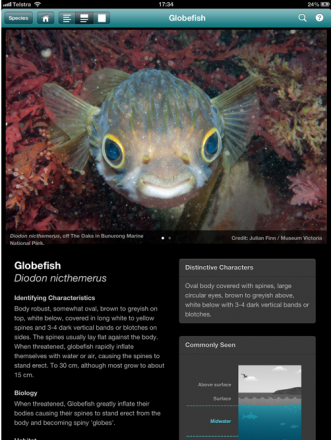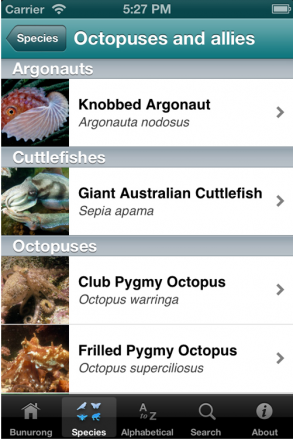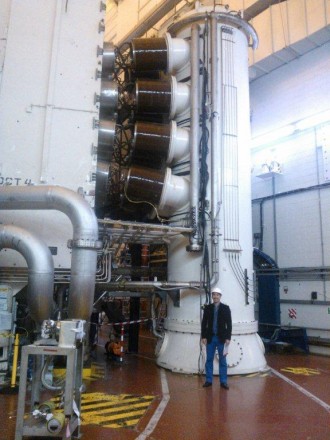Developing purpose-built apps is potentially a very powerful tool for science communication. But the apps arena is still new to us and apps can be very expensive to create, test, promote and/or market. Are any ASCers working on apps that they can talk about? Here’s news of a new science related app and a teaser for an upcoming app partially funded by Unlocking Australia’s Potential grant round earlier this year.
For those divers and snorkelers amongst you, Museum Victoria today launched the Bunurong Marine National Park Field Guide app in conjunction with Parks Victoria.
The app documents over 300 species found in and around Bunurong Marine National Park, a park comprising over 2,000 hectares spread out along six kilometres of Victorian coastline. Museum Victoria has also previously released the Field Guide to Victorian Fauna, which provided images and details of over 700 species found throughout the state.
In combining new media with their existing resources, Museum Victoria is expanding its audience reach at the same time as making its content accessible anywhere, anytime, to Australians with a dedicated or just cursory interest in our native environment. It is envisaged that the app will be used not just by individual users, but by other educative institutions such as aquaria, schools and wilderness groups, helping to inspire a love of science and nature in more Australians.
Those of you who are interested in the app should also keep an eye out for Museum Victoria’s next mobile device app – the Field Guide app to Australian Fauna. In partnership with other state and national institutions, and with the support of federal government Inspiring Australia initiative, the app will provide images and details of over 800 species found across Australia.
The Bunurong Marine National Park Field Guide app is available for free download from iTunes and Google Play.





